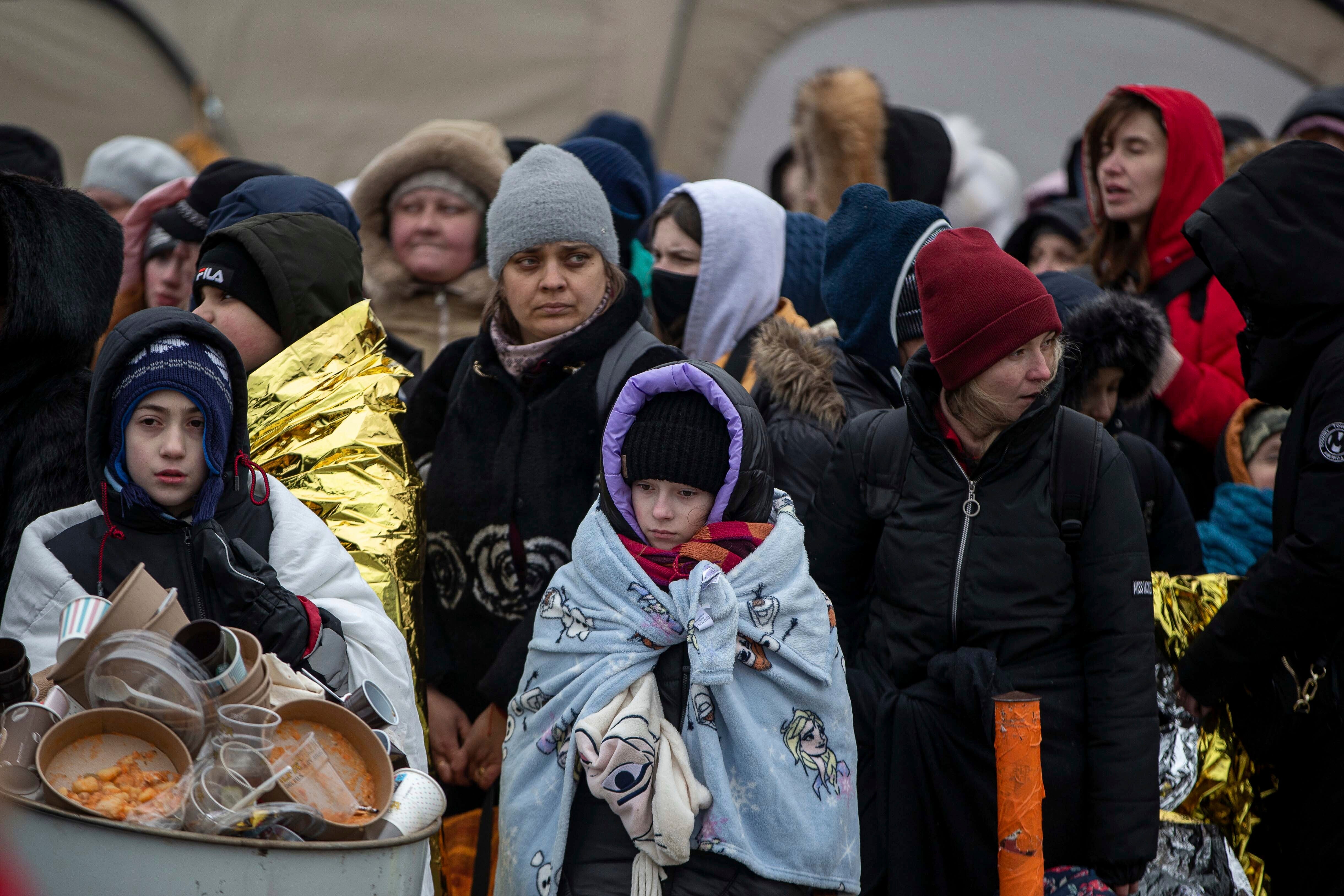UK help for Ukrainian refugees appears grudging – be prepared for repeated U-turns
Britain’s response seems slow and limited compared to the EU – the government will face escalating pressure to amend and extend its offer if it holds this line, argues Andrew Woodcock


Boris Johnson has claimed the UK is taking a “very generous and open approach” towards the 1.7 million Ukrainians who have fled their country to escape Vladimir Putin’s brutal assaults on civilians.
The scale of the British response, however, is coming under increasingly intense scrutiny after Home Office figures indicated at the weekend that only 50 UK visas had been issued.
There was confusion in Whitehall on Monday as the prime minister suggested the figure was wrong, but could not provide a more accurate number.
Suggestions from home secretary Priti Patel that she was considering a new humanitarian route for victims of the conflict also turned out to be misleading as the Home Office and No 10 clarified that she was referring to existing schemes.
It is understood that around 10,000 Ukrainians had applied to come to the UK by Monday. The government insisted it is working through the backlog as quickly as possible, but offered no indication of how soon applicants can expect a decision.
With Poland opening its borders, taking in 1 million Ukrainians, and the EU offering them freedoms to travel, settle and work across the 27-nation bloc, the UK’s response is increasingly looking ungenerous and sluggish.
Smaller countries on Ukraine’s borders have taken in far more refugees than Britain, with 180,000 in Hungary, 130,000 in Slovakia and around 80,000 each in Romania and Moldova, according to UN figures. More than 183,000 people have moved on from these countries to other destinations in Europe.
France’s interior minister Gerald Darmanin condemned Britain for a “totally inadequate response” and “lack of humanity” after Ukrainians trying to reach the UK were turned back at Calais.
At the outset of the Ukrainian crisis, the EU immediately agreed to let in refugees for up to three years without first having to seek asylum.
And last week, the bloc agreed to invoke for the first time the Temporary Protection Directive created at the time of the 2001 Kosovo crisis.
This allows Ukrainians to move freely across the EU, giving them instant rights to live and work within the bloc, along with access to social service benefits like housing and medical care. Under the directive, Ukrainians are also granted temporary residency status without having to go through complex asylum procedures.
In contrast, the UK has targeted specific groups of Ukrainians for assistance and has refused to lift the requirement for visas to enter Britain.
A Ukraine Family Scheme launched last month for relatives of UK residents was initially available only to spouses or partners, children aged under 18 or parents of under-18s, with the government estimating it could see up to 100,000 people come to Britain.
This was later extended to wider family, including grandparents, siblings, children aged over 18 and parents of over-18s, increasing the group potentially eligible to around 200,000.
Entry requirements for English language skills and minimum salary were waived, but applicants were still told to provide documentation such as marriage or birth certificates. However, the Home Office made clear it was willing to consider applications without such papers from people who had fled their homes in fear for their lives.
There have been complaints that refugees were told to submit their applications at UK visa processing centres such as embassies and consulates, meaning long journeys and delays for many of those hoping to come to the UK.
With no centre in Calais, Ukrainians reaching the Channel have been told to go to Paris or Brussels to stake their claims.
A second scheme, the Humanitarian Sponsorship Pathway, will allow access to Ukrainians with no relatives in the UK who can find sponsors – such as councils, charities or businesses – able to support them and provide accommodation during their stay.
No date has yet been set for this route to open, and eligibility requirements are not yet known.
Meanwhile, Ukrainians already in the UK on work and short visit visas have been told they can extend them.
Johnson and Patel have fiercely resisted demands to lift the requirement for visas altogether, arguing this would create a security risk and undermine public support in the UK for the offer of sanctuary.
Patel said Russian troops were “seeking to infiltrate” Ukrainian forces and there were "extremists on the ground" in Ukraine.
Given Putin’s “willingness to do violence on British soil”, Patel said, “we cannot suspend any security or biometric checks on people we welcome to our country”.
As TV screens fill with scenes of civilians being deliberately targeted by Russian troops, the UK’s stance risks appearing grudging and inadequate. The government risks being forced into repeated U-turns as it gradually amends and extends its offer of help to people who have no time to spare in finding a safe haven from war.
The Independent has a proud history of campaigning for the rights of the most vulnerable, and we first ran our Refugees Welcome campaign during the war in Syria in 2015. Now, as we renew our campaign and launch this petition in the wake of the unfolding Ukrainian crisis, we are calling on the government to go further and faster to ensure help is delivered. To find out more about our Refugees Welcome campaign, click here. To sign the petition click here. If you would like to donate then please click here for our GoFundMe page






Join our commenting forum
Join thought-provoking conversations, follow other Independent readers and see their replies
Comments